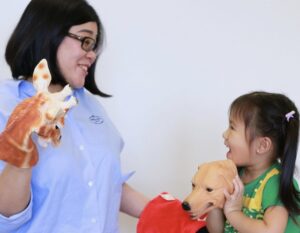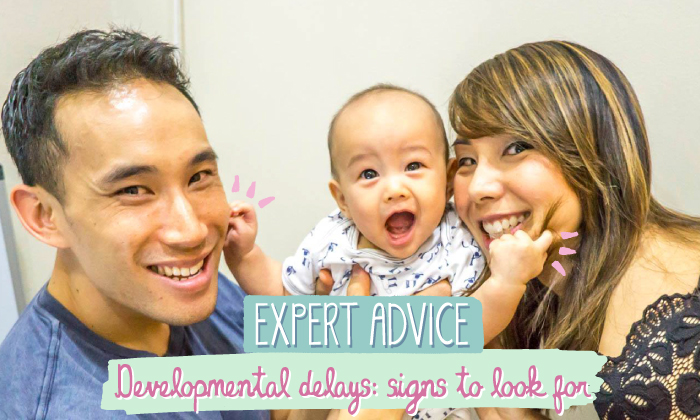




Developmentally on track? Falling behind? When should a parent worry? Our learning expert weighs in on developmental milestones.
Developmental milestones. From saying their first word, to smiling during peek-a-boo games, to reading simple words or paying attention in preschool, most children will “hit these” by a certain age. How a child plays, learns, speaks, moves (crawling, walking etc.), and behaves offers important clues about the child’s development. These checkpoints are used by paediatricians and specialists like educational therapists, occupational therapists, speech therapists, teachers, and parents to track that a child is growing and thriving.
This is my fourteenth year practicing as a speech therapist and working with specialists in the field of children’s development, and I know and work with these milestones every day, but it is my first year doing it as a mum. And I can honestly say that there is a difference seeing it through two very different sets of eyes. I have come to appreciate the immense concern and worry that comes with the territory of being a parent.
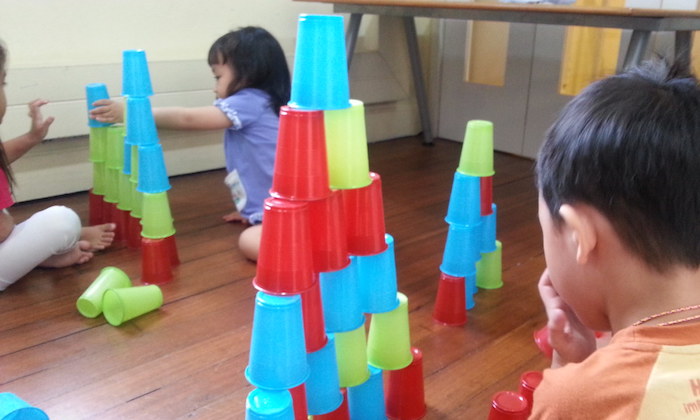

When to worry…like, really worry?
There are many good sources information about what a child should be doing by when available on the Internet. These are mostly reliable and easily accessed. Having my little one has given new meaning to a few statements that I now know to be true: Every child is indeed different with his own strengths, with her own challenges, and each will have their own pace. But when a child still seems to be missing some of the markers expected for her age, after allowing a period of a few months to buffer it might be time to take the next step and consult a professional.
When a child acquires a new skill, she quickly practices it by repeating it, and soon after, masters it and moves on to an enhanced, evolved new ability that was built on the new skill that was just learned. I have never been more amazed watching a child’s development, it is a truly spectacular thing to watch unfold. So, when there is a area that seems to not progress despite some time, support and encouragement, my now “mummy-fied” therapist brain feels that it is important to check it out. While there may not be a need to do anything urgently, getting early attention and assurance is my firm new stance and belief.
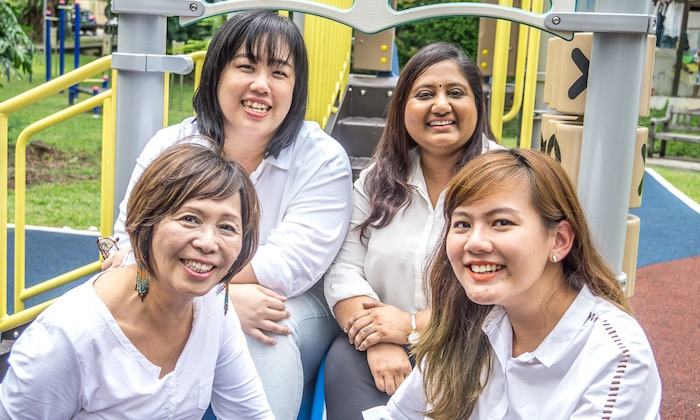

We’ve recently celebrated our 10th year anniversary at Leapfrogs, a children’s therapy centre that I founded in partnership with my mother, May Chan, a preschool principal, and while the children we typically see are 18 months or older, a few of our youngest clients have been 13 and 14 months of age.
Little Lea (not her real name) was 20 months when her parents first contacted us with concerns about her development being delayed. Lea was born without any major concerns, but she would fall over easily, would say only a couple of words, and was a mostly quiet child who didn’t enjoy exploring the world around her or participating. At the front of her parents’ mind were concerns about Autism, intellectual challenges, and above all, worry that their daughter was going to struggle to meet everyday demands. They wanted to know if their little girl’s development was going to be alright.
When I first saw Lea, her abilities put her about a year behind what was expected for her age. This meant that she was really more like a 9-10 month old, rather than a child that was approaching 2 years of age. While there were no big alarm bells in the area of Autism Spectrum Disorder, there were still many concerns in the areas of her motor, communication, social, and even cognitive domains that we had to work on. Lea started with various therapies to support and stimulate these areas.
We had many fun ways to encourage Lea to develop attention and balance, like using her fingers to “rescue” and pull out small animals meshed in Play-Doh and dunking them into a tank of water to stimulate her senses, work on her fine motor abilities, and get her left and right hands working together. We also did other balancing tasks like bouncing on therapy balls, swings while fixing jigsaw puzzles, and picking up “treasured jewels” that needed to be sorted according to a given criteria, all while she climbed stairs.
Within several quarters her improvement was so immense, she moved on to a programme known as Early Intervention Programme (EIP) at Leapfrogs to prepare her to cope with mainstream school. Lea did remarkably well and by the age of 3 ½ she graduated from EIP happily, successfully, and ready to fully join her peers by the following year. Today at the age of 5 she continues to thrive with only some minimal support needed.
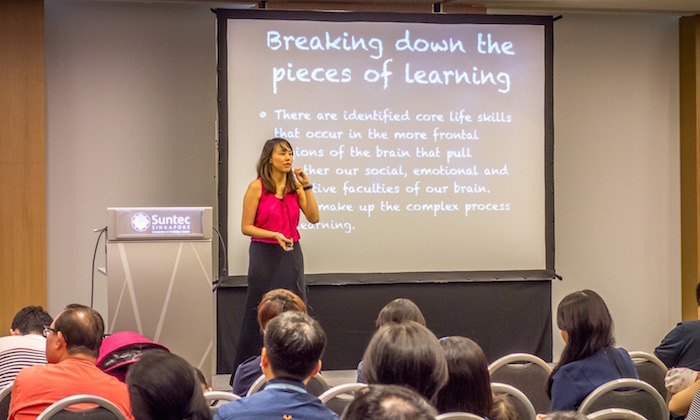

Success stories like Lea’s seem to be more frequent when early actions are taken. And while it takes a village to raise a child, it can take a whole team of educational specialists to support them and close each and every developmental gap that exists.
We’ve been so passionate about early detection and intervention that my team and I jump at every opportunity we get to advocate for worried parents that might be contemplating, silently worrying and waiting for their child’s skills to come together. I recall saying a resounding “YES” to getting out of bed and giving a talk to interested parents 10 days after delivering my little one via C-section. Sleep deprived, swollen and all, I knew that this message has to be shared. Today more than ever before, I now understand much love life as a parent requires.






 View All
View All





 View All
View All








 View All
View All




